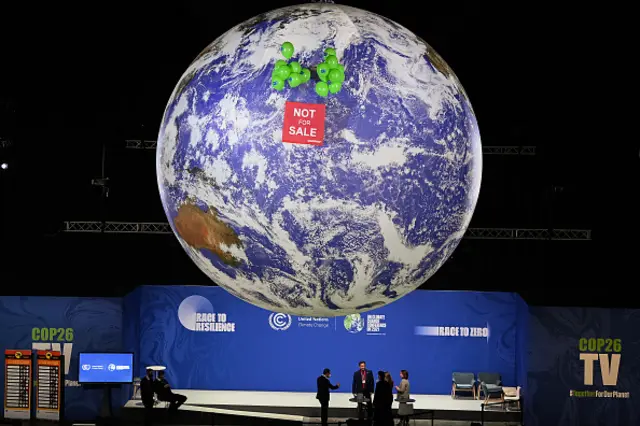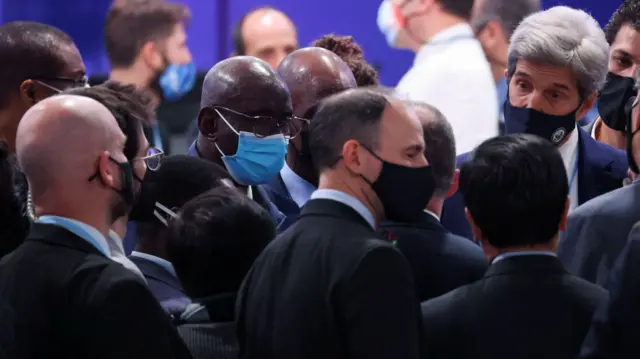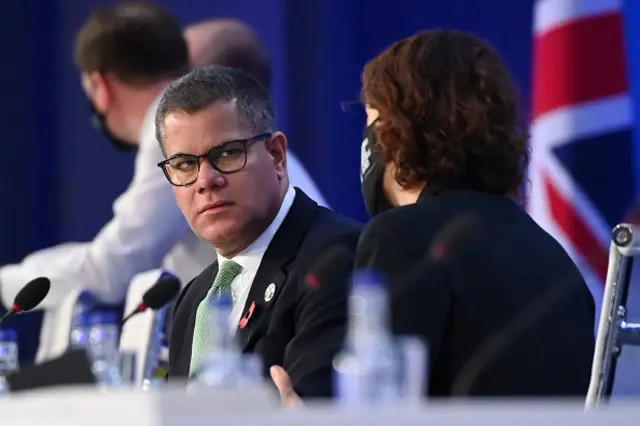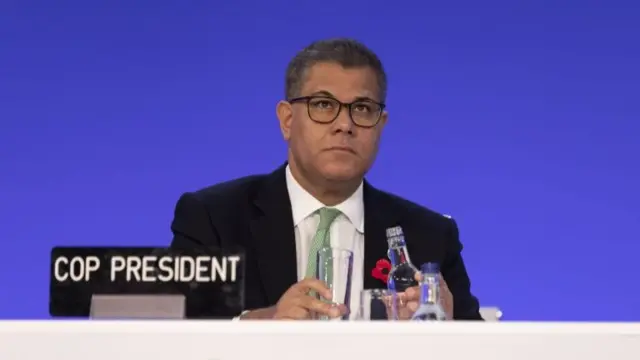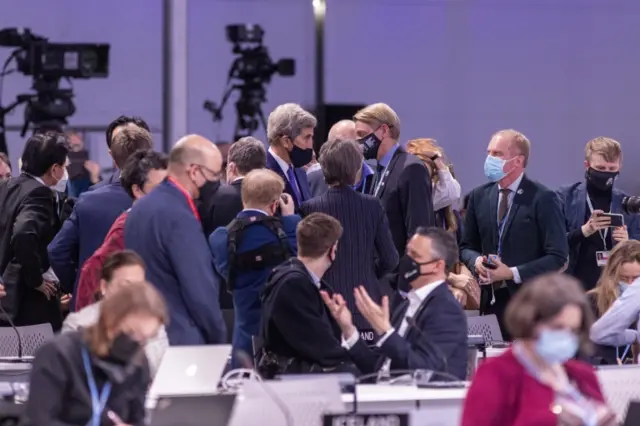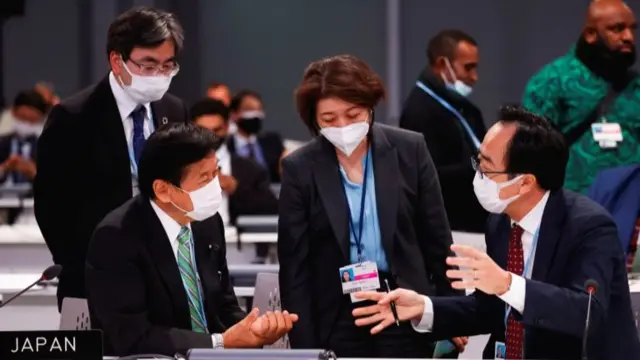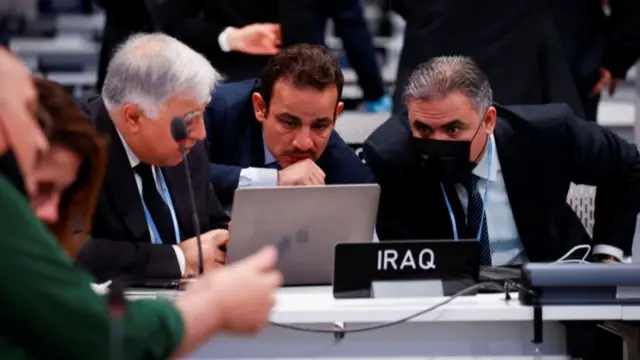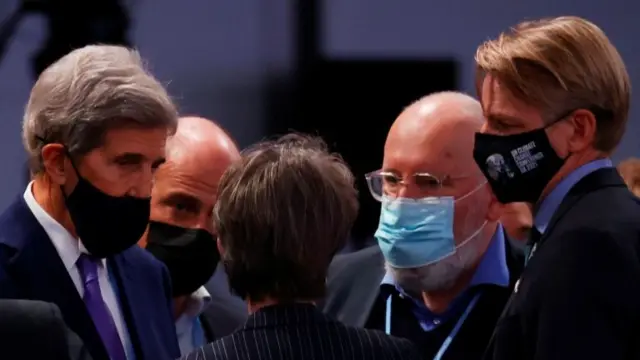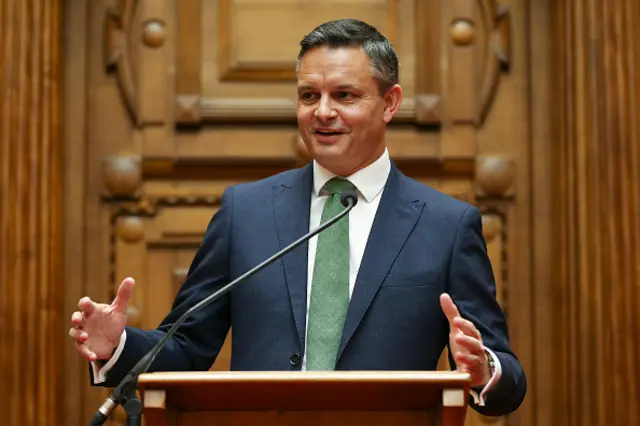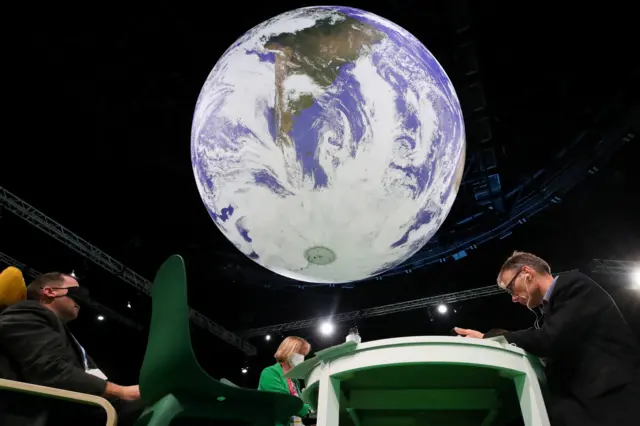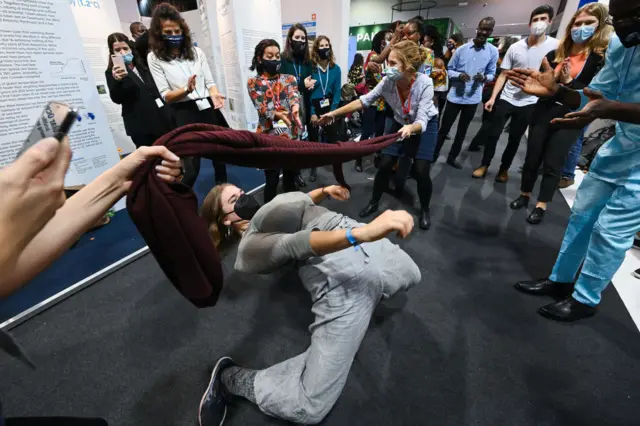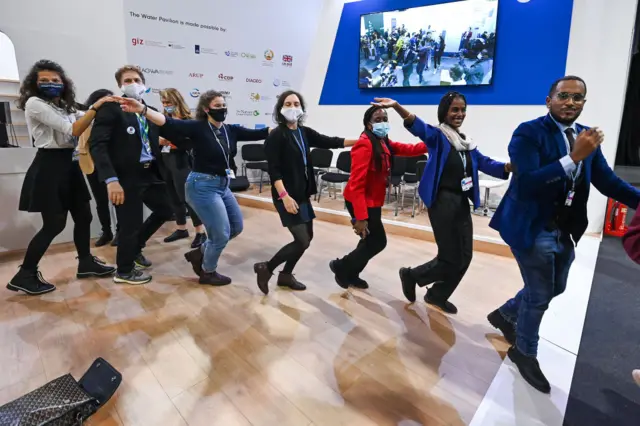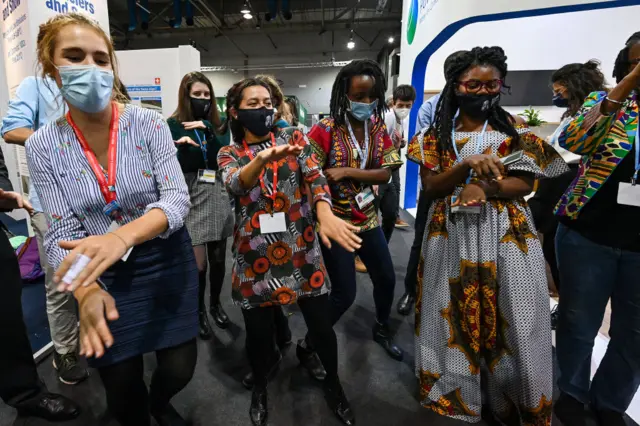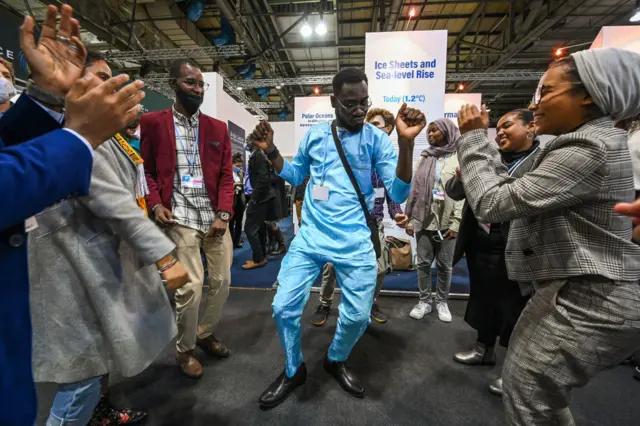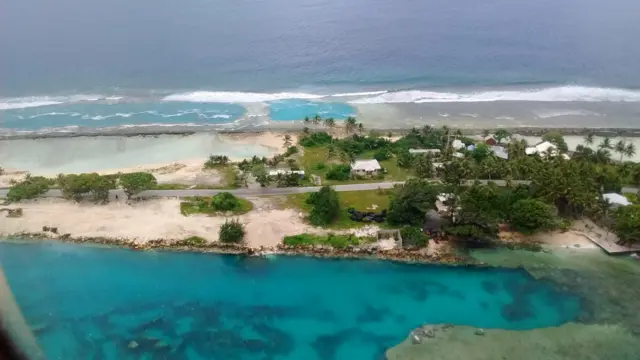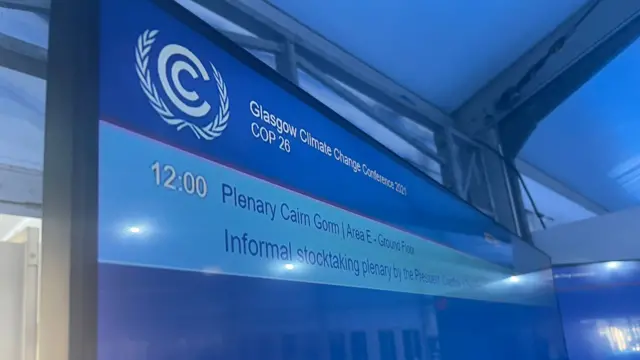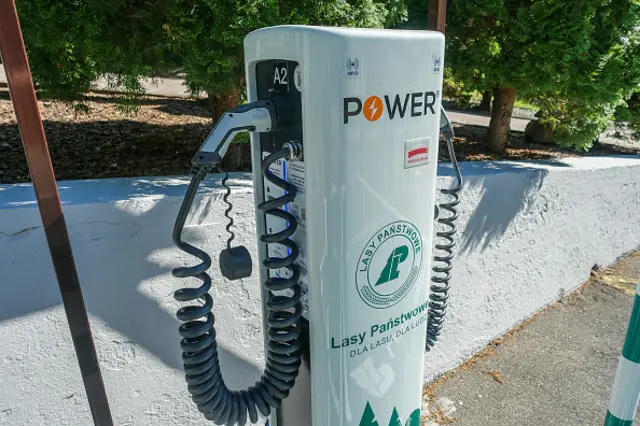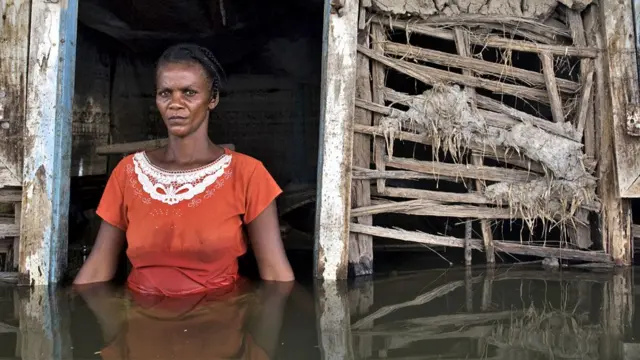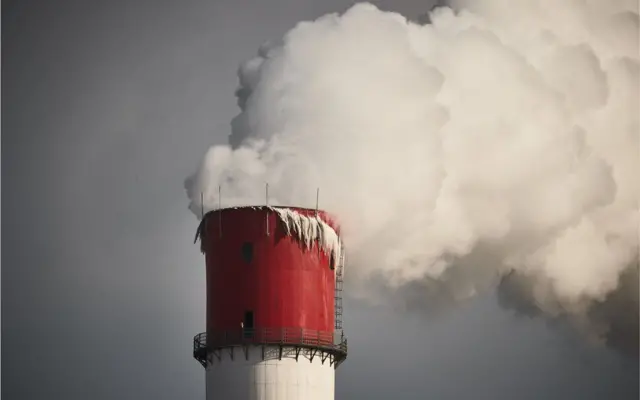The diplomatic dance continuespublished at 14:29 GMT 13 November 2021
The BBC’s Chris Morris is following developments from Glasgow, and says there is a “diplomatic dance” going on when it comes to the language on the compensation poorer countries want from wealthier nations for the effects of climate change they are feeling – something called “loss and damage”.
“It’s money to deal with what’s already happened – part of the debate is how far back to you go?” our correspondent says.
He says the problem is if negotiators start talking about reparations, “the rich world simply backs out” because they don’t want to accept any language that suggests blame and risks being sued, which could potentially cost trillions of dollars.
Read more:

